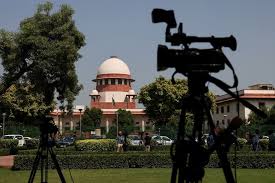In cases where the opposing party files a first appeal against part or whole of the original decree, and the respondent in the said first appeal, due to part or whole of the decree being in their favour, abstains from filing an appeal at the first instance, in such cases, to ensure that the respondent is also given a fair chance to be heard, he is given the right to file his cross objections within the appeal already so instituted by the other party, against not only the contentions raised by the other party, but also against part or whole of the decree passed by the court of first instance.
In a similar circumstance, where the other party in the first instance has preferred an appeal, apart from the remedy of cross objections, the respondent can also file a cross appeal within the limitation period so prescribed, which in essence is a separate appeal in itself, challenging part or whole of the original decree, independent of the appeal filed by the other party. The respondent also has the right to fully support the original decree passed by the lower court in full.
In the present case at hand, the appellants herein, in the court of first appeal filed a cross objection. It is the claim of the appellants herein that his cross objection was not considered by the High Court while passing the impugned judgment. At this stage, it must be noted that while crossobjections, unlike a regular appeal, are filed within an already existing appeal, however, as per Order 41 Rule 22 of the CPC, cross objections have all the trappings of a regular appeal, and therefore, must
be considered in full by the court adjudicating upon the same.
The abovementioned discussions and judgments, when contextualized to the present case, would show that the High Court was under an obligation to consider the cross objections filed by the Appellants herein. Since such an obligation was not discharged while passing the judgment in appeal, we are of the considered opinion that the matter is fit for remand to the High Court for freshadjudication on the grounds raised in the cross objections during appeal by the appellants herein. Accordingly, the present appeals are therefore allowed to such an extent.
SUPREME COURT JUDGMENT
Citation: 2023 STPL(WEB) 33 SC
DHEERAJ SINGH Vs. GREATER NOIDA INDUSTRIAL DEVELOPMENT AUTHORITY & ORS.
Decided on 4-7-2023
Click to See Full Text of Judgment: 2023 STPL(WEB) 33 SC
https://stpllaw.in/wp-content/uploads/2023/07/2023-STPLWEB-33-SC.pdf







